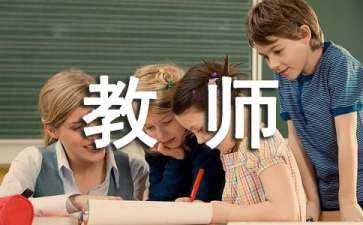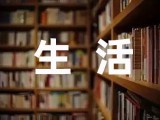Unit 3 Travelling in Garden City(精选4篇)
Unit 3 Travelling in Garden City 篇1
unit 7 travelling in garden city
the first period
language focus:
using pronouns to show quantities
e.g. most , some , none , all
key points:
1. words of direction
2. what will travelling in other places be like in 10 years` time ?
learning procedure
before class
put the followindowsg into english
1 XX年后 _________ 2 喜欢乘公交车旅游 ____________
3 空调车 _________ 4 在过去 ____________
5 停车场 _________ 6 女公交车司机 ____________
7 向售票员买票_______ 8 在…处收集 ____________
9 不得不 _________ 10 其中的大多数立交 ____________
in class
learn the new vocabulary items in look and learn
(1) review irregula verbs
(2) review the present perfect tense
(3) listen to the tape and do ask and answer
(4) look and learn
(5) answer true/ fales (on p46)
(6) read and recite the text
i. fill in the blanks with proper forms of the given verbs
in the past, many people(1)__________(like) (2)_______(travel) by bus. all passengers(3)________(have)to(4)______(buy) tickets. there (5)__________(be) a bus conductor in each bus.he(6)___________(collect) money from the passengers and (7)_______(put) the money in a bag. there(8)_______(be) only single-decker buses. none of
them(9)__________(be)a double-decker bus.there (10)_______(be) no air-conditioners in the buses.
nowadays,some passengers(11)_______(not buy) tickets from the conductor. they(12)_____(put) their money in a fare box or (13)_________ (use) a public transportation card instead. and most buses (14)________(be) aie-conditioned. most of the bus-drivers(15)______(be) men, but some of them (16)________(be) women.
ii. choose and complete.
1.in the past,____________(all/ none) of the bus-drivers were double-decker buses. ________(none/ most) of them were air –conditioned.
2.in the past,_________(some/all)of the bus-drivers were men._________(none/ some) of them were women.
3. _________(all/ none) of the passengers had to buy tickets frome the bus conductors.
4. nowdays,_________(some/all)of the buses have a fare box.. (none /some ) of the passengers use a public transportation card instead.
after class
complate the sentenses with the given words in their proper forms
1. ___________(conduct) colloct money from passengers.
2. it is comfortable to stay in an _________(air-condition) room.
3. there will be ________(few) buses in the future than now.
4. it is _________(interest) to take the double-decker bus.
5. there will ________(possible) be more flyovers in shanghai.
6. perhaps we need to park our car in a car________(parking).
Unit 3 Travelling in Garden City 篇2
unit 7 travelling in garden city
the second period
language focus:
using there will be
e.g.what will travelling in garden city be like in 10 years` time?
perhaps there will be fewer traffic jams
key points:
1. in 10 ten years` time..
2. how to, perhaps, instead, few and more…
learning procedure
before class
put the followindowsg into english
rewrite the sentences as reqired
1. i have a lot of homework to do.(改为一般疑问句)
_____________you _________a lot of homework to do?
2. there will be more roads. (改为定句)
there ________ ________ be more.
3. all of teenages are boys.(保持原句意思)
________ _______the teeages is a girl.
4.nowdays, more people go to work by underground. (对划线部分提问)
________ _______more people go to work by underground ?
5. in the past, many people went to work on foot(对划线部分提问)
________ _______ many people go to work in the past?
put the followindowsg into english
1 10 年后 2 交通堵塞
3 坐摆渡出行_________ 4 地铁站 _________
5 像 _________ 6 坐地铁出行_________
7 人行桥 _________ 8 或许 _________
in class
i. revision (dictation and checking)
1. review some useful phrases
2. learn some names of transportion you can use when you want to travel.
3. think and say
4 play the recording
5. listening and speaking (what will travelling in garden city be like in 10 years` time)
complete the blank with the words given
in the past, many people (1) _________ (like) (2) _________ (travel) by bus. all passengers (3) _________ (have to) (4) _________ (buy) tickets. there (5) _________ (be) a bus conductor in each bus. he (6) _________ (collect) money from the passengers and (7) _________ (put) the money in a bag. nowadays, passengers (8) ____________ (not buy) tickets from a bus conductor. they (9) _________ (put) their money in a fare box or (10) _________ (use) a public transportation card instead.
after class
choose and complete
1. in the past,_______(all / none) of the buses were double-decker buses.______ (none /most) of them wre air-conditioned.
2. in the past,________(some / all) of the bus-drivers were men.._______(noen/ most) of them were women._______.(all /none) of the passengers had to buy tickets from the bus conductors
3. now days, ______(all /some ) of the buses have a fare box. _______(none / some) of the passengers use a public transportation card instead.
choose the best answer
1. in the past, people ______by bus.
a. travel b. travellled c. travelling d. travels
2.—what did mr jones do before he moved here?
__ he ______ a bus.
a. is driving b. drives c. drove d. has driven
3 . this is ______empty bottle. could you give me ______full one?
a. a … a b. an…a c. the…the d. / …a
4._________of us likes playing football.
a. all b. most c. none d. many
5. they _______ to wear sunglasses in writer .
a. haven`t b. have not c. don`t have d. have
6. in summer, more people like taking____________buses.
a. cold b. hot c. different d air-conditioned
7. there are few________in the fridge. let`s go and buy some peas, carrots and cabbages.
a. vegetables b. fruit c. meat&nbs(请记得收藏本站-一路高升范文网,以获取更多新鲜内容)p; d. eggs
8. __i have _______money with me. would you please lend me some?
__of coures. here.
a. a few b. a little c. few d. little
9. there ________a sports meeting in our school next week.
a. will have b. will hold c. is going to be d is going to have
10. _______ people like to travel by ferry._______people like to take the underground because it is faster.
a. fewer… fewer b. less…less c. fewer… more d less…fewer
11. he________in three days.
a. won`t come b. didn`t c. doesn`t come d. hasn`t come
12. sam and sandy are my little brothers._________of us like playing basketball.
a both b. all c none d some
Unit 3 Travelling in Garden City 篇3
module 2 changes
unit 7 travelling in garden city
the third period
language focus:
a poster of future travelling
tavelling in…in 10 years` time
before class
write a poster travelling(write and draw)
1. perhaps all of the people will travel by_________>
2. pohaps most of the people will travel…
3. _______some of the people will…
4. ________none of the people will…
5. ________there will be more….
6. ________there will be fewer…
in class
look and say
read and say
look and write
draw and write
after class
writing:
trvelling in sunny bay in 15years` time
perhaps _________the people will not travel by ferry
perhaps ________the people will travel by_________>
perhaps there will be _________railways.
perhaps there will be_____________.
read and match
1. the traffic in shanghai is much______(good, better) than before.
2. we need___________ ( much, more) car parks because many people have their own cars now.
3. there are about sixty ___________(woman, women ) teachers in our school.
4. there not any ________(fly, flyovers ) in shanghai thirty years ago.
5. ________( none. not ) of us finished the homework, so mr. zhang was angry.
6. --.who is the lady standing at the ________(cross, crossing) with james?
--she is james` aunt.
choose and complete
1. in the past, the farmers________(grow/grew) food with their hands.
2. ______(nowdays/ in 10 years` time), perhaps each family will have their own cars in our city.
3. ________(none/some) of the students is late for school.
4. i_______(will/won`t) go swimming any longer.
5. it`s too hot today.please give_______(she /her) a bottle of orange juice.
6. you should eat________(fewer/ less)food and take _______(more/less) exercise.
7. __would you like some more rice?
__yes. just______(a few/ a little).
8. mary is very careful and she makes ______ (a few/ few) mistakes in her work.
9. i only have one book. i want _________(few/more).
10. mum, this t-shirt is much too small for me. would you buy me a _______(smaller/larger) one?
read and tick (true or fales)
many,many years ago,the world had only a few thousand people. the moved from place to place.they hunted animals for food.
a long time passed. these ancient(古代的)people began growindowsg crops .no one today knows how and where those people learnt about it.but they knew that that. from then on the life of those people changed.they didn`t have to move their houses any more.
they could stay in one place and grow crops.people began to live near each other. and so the first villages grew.many people came to work in the villages. these villages became bigger and bigger.then people had machines,and life in the villages changed villages grew into cicties. then city life began.
( )1.there were millions of people in the worl many,many years ago.
( )2.at that time, they hunted animals and grew crops for food.
( )3.the ancient people`s life changed after they began growindowsg crops.
( )4.the first villages grew when people began to live near each other.
( )5.machines made the life in the villages change again.
( )6.people built factorise and then factories becane cities.
read the passage and choose the best answer(根据短文内容 ,选择最恰当的答案)
left hand or right hand
which of your hands do you use most? very few of us use both of our hands well. most of us are right-handed. only about five people out of a hundred are left-handed. new-born babies can take things with either of their hands, but in about two years they like to use their right hands. scientist don’t know why this happens. they have studied it. they think our animal ancestors(祖先) right-handed, but this may not be true. monkeys are our closest relations(亲缘) in the animal world. scientists have found these monkeys like to use one of their hands more than the other –but it can be either hand. there are so many right-handed ones. next time you visit the zoo, watch the monkeys. you’ll see that some of them will swindowsg(摆动) from their right hands and others will use their left hands. but most human beings(人类) use their right hands better and this makes right-handed ones. we live in a right-handed world.
1.very few of us can use both of our hands well.it means_____.
a. we can`t use one hand as well as the other
b. we can`t use both hands
c. many people can use one hand as well as the other
d. some of us can use both hands
2.new-born babies______at first.
a. can only use their right hands b. can only use their left hands
c. can ues theirhands d. can ues both of their hands
3. which of the followindowsg is ture?
a.monkeys are left-handed. b. monkeys are right-handed
c. some of the monkeys are left- handed ,others are right-handed.
d. there are many more right-handed monkeys than others left-handed monkeys
4. we live in a(n)______
a. left- handed world b. right-handed world
c. monkey world d. animal world
5. left-handed people are difficult in life because__________.
a. they can`t use their right hands at all
b. most of people use their right hands better
c. they can`t use both of their hands
d. they can`t use their left hands
Unit 3 Travelling in Garden City 篇4
unit 3 travelling in garden city
【本讲教育信息】
一. 教学内容:
module 1 change unit 3 travelling in garden city
1、重点词汇、短语
2、重点句型
3、一般过去时
4、there be句型
二. 本周知识总结与归纳:
(一)重点词汇、短语
travel buy ticket each collect money instead none man woman perhaps few railway park
a double-decker bus an air-conditioner a air-box in the past most of some of
all of none of not… any longer
(二)重点句型
many people liked traveling by bus.
in the past, none of the bus drivers were women.
all of them were men.
perhaps there will be more roads.
perhaps we won’t travel by ferry any longe r.
(三)一般过去时
1、概念:
一般过去时表示
(1)过去某个特定时间发生,并一下子就完成了的动作(即:非持续性动作)
i had a word with julia this morning.今天早晨,我跟朱丽亚说了几句话。
(2)过去习惯性的动作。
he smoked many cigarettes a day until he gave up. 他没有戒烟的那阵子,烟抽得可凶了。
一般过去时不强调动作对现在的影响,只说明过去。
2、时间状语:
一般过去时常与表示过去的时间状语或从句连用,如:yesterday, last week, in 1993, at that time, once, during the war, before, a few days ago, when 等等。
i had lunch about ten minutes ago. 我是大约十分钟以前吃的午饭。
i used to work fourteen hours a day. 我过去常常一天工作十四个小时。
3、一般过去时的基本用法:
(1)带有确定的过去时间状语时,要用过去时
如:yesterda y(昨天)、two days ago…(两天前……)、last year…(去年……)、the other day(前几天)、once up on a time(过去曾经)、just now(刚才)、in the old days(过去的日子 里)、before liberation(解放前……)、when i was 8 years old(当我八岁时 )
did you have a party the other day?前几天,你们开晚会了吗?
lei feng was a good soldier. 雷锋是个好战士。
注意:
在谈到已死去的人的情况时,多用过去时。
(2)表示过去连续发生的动作时,要用过去时
这种 情况下,往往没有表示过去的时间状语,而通过上下文来表示。
the boy opened his eyes for a moment,looked at the captain,and then died.
那男孩把眼睛张开了一会儿,看看船长,然后就去世了。
(3)表示过去一段时间内经常或反复的动作
常与always,never等连用。
mrs. peter always carried an umbrella.
彼得 太太过去老是带着一把伞。
(只是说明她过去的动作,不表明她现在是否常带着伞。)
比较:
mrs. pete r always carries an umbrella.
彼得太太老是带着伞。
(说明这是她的习惯,表明她现在仍然还习惯总带着一把伞)
i never drank windowse.我以前从不喝酒。
(不涉及到现在,不说明现在是否喝酒)
(4)如果强调已经终止的习惯时要用used to do
he used to drink.
他过去喝酒。
(意味着他现在不喝酒了。喝酒这个动作终止了)
i us ed to take a walk in the morning.
我过去是在早晨散步。
(意味着现在不在早晨散步了)
i took a walk in the morning.
我曾经在早晨散过步。
(只是说明过去这一动作)
(5)有些句子,虽然没有表示过去确定时间的状语,但实际上是指过去发生的动作或存在的状态的话,也要用过去时,这一点,我们中国学生往往出错,要特别注意!
i didn’t know you were in paris.
我不知道你在巴黎。
(因为在说话时,我已经知道你在巴黎了。这句话指的是说话之前,所以只能用过去时表示。实际上,这句话暗指:but now i know you are here.)
i thought you were ill.
我以为你病了呢。
(这句话应是在说话之前,我以为你病了。但是呢现在我知道你没病)
(四)ther e be句型
1、意义及形式:
there be 结构主要用以表达“某处(某时)有某人(某物)”,
其基本句型为“t here be+某物或某人+某地或某时”
其中there 是引导词,没有词义;be是谓语动词;“某人或某物”是句子的主语;“某地或某时”作句子的状语,多是介词短语。如:there is a football under the chair. 椅子下面有一个足球。
2、there be结构中的动词be的确定:
(1)there be 结构中的谓语动词be在人称和数上应与其后的主语保持一致。主语是不可数名词或单数可数名词时用is,是复数时用are。如:
there is a flower in the bottle. 瓶里有一朵花。
there is some money in the purse. 钱包里有些钱。
(2)若句子中有几个并列的主语时,be的形式要与离其最近的一个主语在人称和数上保持一致。如:
there is a boy, a girl and two women in the house.
房子里有一个男孩,一个女孩和两个妇女。
there are ten students and a teacher in the office. 办公室里有十个学生和一个教师。
[来源:本站]
另外,在陈述句中为了强调地点,也可将介词短语提置句首。如:
in the tree there are five birds. 树上有五只鸟。
3、there be 结构的句型转换
(1)否定句:there be的否定式通常在be后加not构成(在口语中be时常与not缩写在一起)。如果句中有some,一般要变成any。如:
there are some children in the picture. →there aren’t any children in the picture.
(2)一般疑问句及其答语:把be提到there前,首字母大写,句末用问号即可。其肯定答语是yes, there is / are;否定答语为no, there isn’t / aren’t。如:
-are there two cats in the tree?
-yes, there are. (no, there aren’t.)
(3)特殊疑问句及其回答:①提问句子的主语(包括主 语前的修饰语)时,句型一律用“what is+地点介词短语?”(无论主语是单数还是复数都用is)。如:
there are some birds in the tree. →what’s in the tree?
②就there be后面的地点状语进行提问时,句型用“where is / are+主语?”如:
there is a car in the street. →where is the car?
③提问可数名词(主语)前的数量时,用how many,句型结构为“how many+复数名词+are there +其它?”(主语无论是单数还是复数,be通常要用are)。如:
there is a cat under the bed. →how many cats are there under the bed?
推荐站内搜索:英语周记、教师中国梦演讲稿、200字日记、高等教育自学考试成绩查询、成人高考 科目、中小学教师证考试、中小学教师资格证考试网成绩查询、公务员试题下载、教室资格证查成绩、自考报名入口、


 Unit 3 Travelling in Garden City(精选4篇)
Unit 3 Travelling in Garden City(精选4篇)



